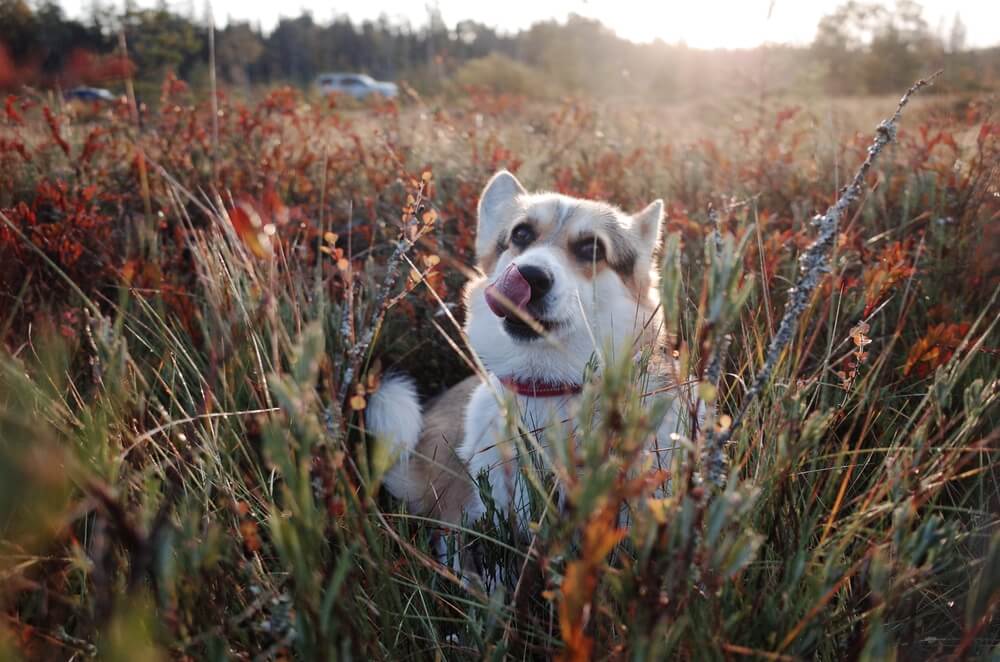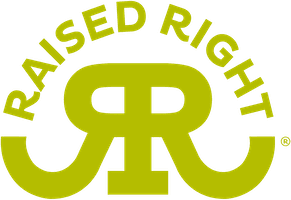
Have you ever wondered if your dog can eat cranberries? Well, the simple answer is yes. Cranberries are a well-known household food item that we often add to juices, smoothies, or sauces. They are known to be healthy food and even regarded as a superfood (similar to blueberries)! This is no surprise as cranberries are full of antioxidants and nutrients that are hugely beneficial to our health.
Many of us try to include this important fruit into our diets to avail of the many health benefits. What about our canine companions? They can eat cranberries but there’s some information that you need to know first before you start feeding cranberries to your dog.
First of all, what are cranberries?
Cranberries are small, round red fruits that are part of the heather family and are related to blueberries. Different varieties grow around the world but they all belong to the genus Vaccinium. They’re packed full of goodness and it’s a well-known fact that they contain lots of nutritional benefits but what exactly are the nutritional values of cranberries?
According to the US Department of Agriculture – Food, 1 cup of raw (not cooked, dried, or in powdered form) whole cranberries contains;
- 46 calories
- 0.1 gram of fat
- 12 grams of carbohydrates
- 3.6 grams of fiber
- 4.2 grams of sugar
- 0.5 gram of protein
- 2 milligrams of sodium
From the above information, we can tell that cranberries are a low-calorie treat with almost zero amounts of fat making them a good treat for an overweight dog on a diet. They have moderate amounts of fiber which is needed for a healthy digestive system and body.
Along with the nutritional stats above, cranberries also have vitamins C, A, E, and K, potassium, calcium, manganese, copper, and B-complex vitamins. They contain the antioxidants quercetin, myricetin, peonidin, ursolic acid, and A-type proanthocyanidins which are very important in protecting the body’s cells against free radicals.
Can Dogs Eat Cranberries?

Cranberries aren’t toxic or poisonous to dogs and they can eat them without risk.
The short answer is yes. Cranberries aren’t toxic or poisonous to dogs and they can eat them without risk. Some dogs might like the bitter taste and others might not but either way, a small amount of plain raw or cooked cranberries won’t do any harm to your dog. The problem is that cranberries are added to many dishes, juices, sauces, etc. and these forms can contain many other ingredients that may be harmful to dogs. We’ll discuss these in more detail now.
- Raw cranberries are safe to eat in small amounts. They can be quite bitter in this form and therefore less palatable to your dog, but they may eat them regardless.
- Cooked cranberries are safe to eat if there have been no other ingredients added to the dish e.g. onions, garlic, and sugars. Again, it is recommended to eat these in small amounts.
- Dried cranberries are safe on their own but they’re generally sold in a mixed bag of dried fruit, beans, and seeds that can also contain harmful ingredients such as raisins which are extremely toxic to dogs and can cause kidney failure.
- Cranberry sauce, jelly, bread, and juices may contain higher amounts of sugar and additives. Even worse, they may contain sugar substitutes e.g. xylitol, that is toxic to dogs.
- Cranberry supplements (pills) are available for dogs that may help to promote urinary tract health and prevent UTIs. Only give your dog supplements that have been approved by your veterinarian.
- Cranberries can be added to dog foods. This is safe if formulated by a company whose recipes meet AAFCO’s standards for a complete & balanced diet. Take a look at some of our recipes with added cranberries.
Taking the above information into account, I would only recommend raw, cooked, or dried cranberries in moderation. It’s important to ensure that there are no added ingredients to the cranberries before you give them to your dog.
If you want to feed your dog cranberries, I would recommend gradually adding these into your dog’s diet as any sudden food changes can potentially cause diarrhea +/- vomiting, or a decrease in appetite.
Are Cranberries Healthy for Dogs?

Cranberries have shown promising signs in regards to health benefits in dogs particularly to prevent UTIs.
As we’ve discussed, cranberries are a superfood and are full of antioxidants. They have numerous proven health benefits for people including;
- Anti-cancer effects
- Anti-inflammatory
- Protects against liver disease
- Lowers blood pressure
- Improves eyesight
- Improves cardiovascular health
- Promote urinary tract health and prevent urinary tract infections (UTIs)
- Promote gut health
- Promote healthy gums and mouth
I’m sure you’d agree that this is a pretty impressive list and it’s no wonder that cranberries have such a reputation for being a healthy food. From lowering blood pressure to having anti-cancer effects, they’re a food that is beneficial to any of our diets but what about our canine companions?
Cranberries have shown promising signs in regards to health benefits in dogs particularly to prevent UTIs. It is thought that cranberries interfere with the attachment of some bacteria to the bladder wall, therefore having a protective effect against infections. Many urinary tract supplements for dogs contain cranberries for this reason.
However, lots of studies have been done to prove the health benefits of cranberries for humans but not as many have been performed to show this in dogs. Further studies are needed in this field to confirm the benefits for dogs too but we know that cranberries (in moderation) are well tolerated in dogs and are not poisonous.
Summary

Cranberries are a famous superfood for humans, but potentially for dogs too! Dogs can eat cranberries in small amounts with no side effects, if eaten in large amounts they may cause an upset stomach. Plain raw, cooked or dried cranberries are the safest to eat as sauces, jellies, juices, and other cranberry condiments can have added ingredients such as harmful sugar substitutes like xylitol. Further research is being carried out on the health benefits of cranberries in dogs but we know that there are numerous health benefits in humans and that cranberries are well tolerated in dogs. So if your dog likes them, there’s potentially a lot of benefit in adding some into your dog’s diet.



